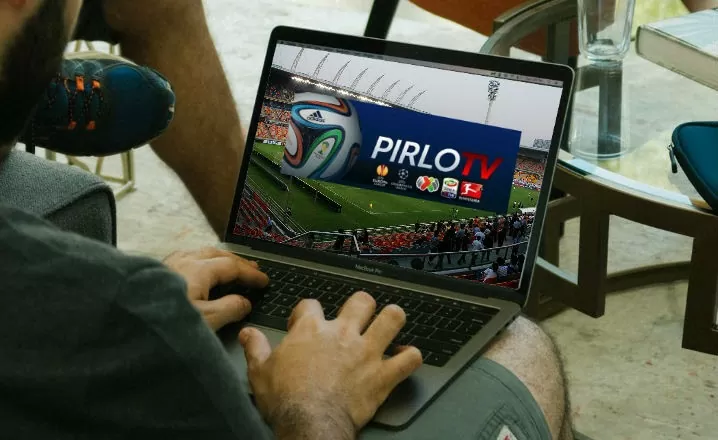FIFA, the Fédération Internationale de Football Association, is the global governing body of football (or soccer, as it is known in some countries). Founded in 1904, FIFA has grown to become the most influential organization in the world of sports, overseeing international competitions, setting rules, and promoting the development of football globally. This article explores FIFA’s rich history, its major tournaments, the top teams and players, and its impact on the sport worldwide.
History of FIFA
FIFA was founded on May 21, 1904, in Paris by seven national associations: Belgium, Denmark, France, the Netherlands, Spain, Sweden, and Switzerland. The primary goal was to oversee international competition among the national associations of Belgium, Denmark, France, Germany, the Netherlands, Spain, Sweden, and Switzerland.
Founding and Early Years
The establishment of FIFA marked the beginning of organized international football. The first FIFA World Cup was held in 1930 in Uruguay, which won the inaugural tournament. The early years of FIFA were marked by the steady expansion of membership and the establishment of rules and regulations that would govern the sport internationally.
Milestones and Growth
Over the decades, FIFA has grown exponentially, with over 200 member associations today. Key milestones include the expansion of the World Cup to include more teams, the introduction of the Women’s World Cup in 1991, and the development of numerous youth and club competitions.
FIFA’s Structure and Governance
FIFA’s organizational structure is designed to ensure efficient governance and management of the sport worldwide.
Organizational Structure
FIFA is headquartered in Zurich, Switzerland, and is governed by a congress consisting of representatives from each member association. The congress meets annually to discuss and vote on key issues.
Key Officials
The president of FIFA is the highest-ranking official, elected by the congress. The president oversees the FIFA Council, which includes representatives from each continental confederation.
Decision-Making Processes
Decisions within FIFA are made through a democratic process involving various committees, each focusing on specific areas such as competitions, ethics, finance, and development.
Major FIFA Tournaments
FIFA organizes several major international tournaments that are watched by millions around the world.
FIFA World Cup
The FIFA World Cup is the most prestigious football tournament globally, held every four years. It features 32 national teams competing for the coveted trophy. The tournament has produced unforgettable moments and legendary players.
Women’s World Cup
The FIFA Women’s World Cup, also held every four years, has grown significantly in popularity and competitiveness. It showcases the best female footballers and promotes the development of women’s football globally.
FIFA Club World Cup
The FIFA Club World Cup features the champion clubs from each of the six continental confederations, along with the host nation’s league champion. It determines the best club team in the world.
Other Tournaments
FIFA also organizes youth tournaments like the U-20 and U-17 World Cups, and futsal and beach soccer competitions, ensuring a comprehensive development of the sport.
Top National Teams
Several national teams have established themselves as powerhouses in international football.
Brazil
With five World Cup titles, Brazil is the most successful national team in FIFA World Cup history. Known for their attacking flair and skillful play, Brazil has produced legends like Pelé and Ronaldinho.
Germany
Germany has won the World Cup four times and is renowned for its efficient and disciplined style of play. German football is characterized by strong teamwork and tactical prowess.
Italy
Italy has also won the World Cup four times. Known for their solid defense and tactical intelligence, Italian teams have consistently performed well on the international stage.
Argentina
With two World Cup titles, Argentina is known for producing some of the most skillful players in football history, including Diego Maradona and Lionel Messi.
France
France has won the World Cup twice, most recently in 2018. The French team is known for its blend of physicality, skill, and tactical versatility.
Legendary Players in FIFA History
FIFA has seen some of the greatest football players in history grace the field.
Pelé
Considered one of the greatest footballers of all time, Pelé won three World Cups with Brazil and scored over 1,000 career goals. His skill, creativity, and sportsmanship made him a global icon.
Diego Maradona
Maradona led Argentina to World Cup glory in 1986, famously scoring the “Hand of God” goal and the “Goal of the Century” in the same tournament. His dribbling skills and vision were unparalleled.
Lionel Messi
Messi, a modern-day legend, has won multiple Ballon d’Or awards and numerous titles with Barcelona. Known for his dribbling, scoring, and playmaking abilities, Messi is a global superstar.
Cristiano Ronaldo
Ronaldo, another contemporary great, has won numerous titles with Manchester United, Real Madrid, and Juventus. His athleticism, goal-scoring prowess, and dedication make him one of the best.
Zinedine Zidane
Zidane led France to World Cup victory in 1998 and is renowned for his elegance, vision, and technical skills. He later became a successful coach, winning multiple Champions League titles with Real Madrid.
FIFA Rankings and How They Work
FIFA rankings are used to evaluate and compare the performance of national teams.
Explanation of FIFA Rankings
FIFA rankings are calculated based on a team’s performance in international matches, considering factors like match result, importance of the match, and the strength of the opponent.
Factors Influencing Rankings
- Match Result: Winning a match awards more points than drawing or losing.
- Match Importance: Competitive matches like World Cup qualifiers carry more weight than friendly matches.
- Strength of Opponent: Defeating a higher-ranked team earns more points than beating a lower-ranked team.
Recent Rankings
The rankings are updated monthly, reflecting the latest performances of national teams. Countries like Belgium, Brazil, and France often occupy top positions due to their consistent success.
FIFA’s Role in Football Development
FIFA plays a crucial role in promoting and developing football at all levels.
Grassroots Programs
FIFA invests in grassroots programs to encourage participation in football from a young age. These programs aim to make football accessible to everyone, regardless of their background.
Youth Development
FIFA supports youth development through various tournaments and academies, providing young players with opportunities to showcase their talent and develop their skills.
Women’s Football
FIFA has been instrumental in promoting women’s football, increasing investment in the women’s game, and organizing the Women’s World Cup to boost visibility and popularity.
Controversies and Challenges in FIFA
Despite its success, FIFA has faced numerous controversies and challenges.
Corruption Scandals
FIFA has been plagued by corruption scandals, most notably in 2015 when several top officials were arrested for bribery and corruption. These incidents have tarnished FIFA’s reputation.
Governance Issues
FIFA’s governance structure has been criticized for lack of transparency and accountability. Reforms have been implemented, but challenges remain in ensuring good governance.
Challenges Facing FIFA
FIFA faces challenges such as maintaining the integrity of the sport, dealing with financial disparities between clubs and countries, and ensuring fair play and competition.
Impact of FIFA on Global Football Culture
FIFA has had a profound impact on global football culture.
Popularity of Football
FIFA’s efforts have helped make football the most popular sport in the world, with millions of fans and players across the globe.
Influence on Other Sports
FIFA’s success has influenced other sports in terms of organization, marketing, and global reach.
Cultural Impact
Football, under FIFA’s stewardship, has become a cultural phenomenon, influencing music, fashion, and even politics.
Technology and Innovation in FIFA
FIFA has embraced technology to improve the game.
VAR (Video Assistant Referee)
VAR has been introduced to help referees make accurate decisions on key incidents during matches, such as goals, penalties, and red cards.
Goal-Line Technology
Goal-line technology ensures that goals are accurately detected, eliminating disputes over whether the ball crossed the line.
Future Technological Advancements
FIFA continues to explore new technologies to enhance the game, including advancements in player tracking and data analytics.
FIFA and Social Responsibility
Fédération Internationale de Football Association takes its social responsibility seriously.
Fair Play Initiatives
FIFA promotes fair play through various campaigns, encouraging players and fans to uphold the spirit of the game.
Anti-Racism Campaigns
FIFA actively works to combat racism in football through education, strict penalties, and awareness campaigns.
Community Projects
FIFA supports community projects that use football as a tool for social change, promoting health, education, and social integration.
The Future of FIFA and Football
The future of Fédération Internationale de Football Association and football looks bright, with plans for expansion and innovation.
Expansion Plans
Fédération Internationale de Football Association plans to expand its competitions, including increasing the number of teams in the World Cup and enhancing youth and women’s tournaments.
Upcoming Tournaments
Upcoming tournaments, like the 2022 World Cup in Qatar, promise to bring new excitement and challenges.
Future Challenges and Opportunities
Fédération Internationale de Football Association faces challenges such as ensuring sustainability, maintaining competitive balance, and continuing to innovate while preserving the essence of the game.
Conclusion
Fédération Internationale de Football Association has played a pivotal role in shaping the world of football, from its early days to becoming the global powerhouse it is today. With a rich history, major tournaments, legendary players, and ongoing innovations, Fédération Internationale de Football Association continues to influence and inspire the beautiful game. As the organization moves forward, it faces challenges and opportunities that will define the future of football for generations to come.
FAQs about FIFA
How does Fédération Internationale de Football Association influence global football?
FIFA oversees international competitions, sets rules, promotes development, and works to ensure the integrity and growth of the sport worldwide.
What is the Fédération Internationale de Football AssociationWorld Cup?
The Fédération Internationale de Football Association World Cup is the most prestigious football tournament, held every four years, featuring national teams from around the world competing for the title.
How are Fédération Internationale de Football Association rankings determined?
Fédération Internationale de Football Association rankings are calculated based on a team’s performance in international matches, considering match results, importance, and the strength of opponents.
What are some of Fédération Internationale de Football Association major tournaments?
Major Fédération Internationale de Football Associationtournaments include the FIFA World Cup, Women’s World Cup, Fédération Internationale de Football Association Club World Cup, and youth tournaments like the U-20 and U-17 World Cups.
How has Fédération Internationale de Football Association embraced technology?
Fédération Internationale de Football Association has introduced technologies like VAR and goal-line technology to improve decision-making and ensure the accuracy of match outcomes.







